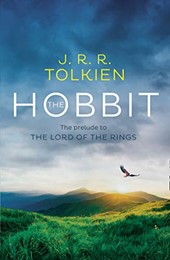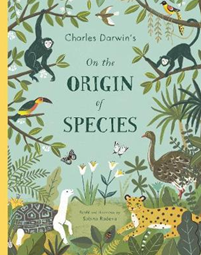Year 6
Year 6 class is taught by Mrs Claire Merrifield and
Mrs Caroline Dinham (Friday only)
Teaching and learning is supported by Mrs R Cuttler
Y6 Lanner Matrix 1 overview (1)
Summer 2 2025
This half term, let’s take a tour to ‘Middle-earth’ as we read and examine one of Tolkien’s extraordinary works of fiction: The Hobbit. John Ronald Reuel Tolkien, born in 1892, England, embarked upon a distinguish academic career and was awarded a CBE from Oxford University in 1972. Tolkien died in 1973 at the age of 81.
Not only will we explore a fictional world but we will investigate and research our current planet dilemmas and the devastating effects of climate change. In Britain, Europe and across the planet, we will have the perfect opportunity to connect as we will encourage our children to consider issues such as leadership, sustainability, and what it really means to be global citizens.
English
Reading will be taught daily through our core texts (‘The Hobbit’ by J.R.R, Tolkien and ‘Origin of Species’ by Sabina Radeva). Children will develop their comprehension skills by retrieving and inferring information from a range of texts. Pupils will discuss themes and explore new vocabulary.
Writing: Each day, the children will immerse themselves in an English lesson, examining and learning about the following genres: narrative writing (quests), Shakespearean poetry, and non-chronological reports.
We begin examining the characters Bilbo Baggins and Gandalf using a variety of sentences types to describe them and their setting. The children will then innovate and write a quest story of their own. Our Shakespearian poetry unit will focus of analysing features of sonnets and explore Iambic Pentameter. The children will then write their own sonnet with the challenge of using Iambic Pentameter. Finally, the children will revisit non- chronological reports (information texts). We will improve an existing non- chronological report about the Tongo lizard and the research and write a unique report about dragons.
Maths
During Summer 2, our aim is ensure every child feels confident and secure in their ability to succeed in maths. As mathematicians, we will continue to apply a wide range of maths skills, including revisiting the four written and mental calculation methods during our daily ‘fluent in 5’ sessions.
To ensure the children have the opportunity to revisit and apply their knowledge and understanding of Y6 and all KS2 maths, we will embark on three maths projects over the half term, inspired from WhiteRose Maths. Each project will provide opportunities to ensure any possible gaps in understanding are addressed before children move on to secondary school. An overview of the curriculum content areas explored in the project can be found in the project overview.
Geography
As geographers, we will investigate the effects and impact of climate change and extreme weather. We will look at the world globally and Australia in detail: climate statistics and the impact.
Here is a breakdown of the small steps in learning:
Step 1: Are you able to define what ‘climate change’ is?
Step 2: Can you explain the causes of climate change?
Step 3: Can you describe the effects of global warming?
Step 4: Are you able to explain the G7 (group of seven) summit’s purpose?
Step 5: Can you explain what ‘sustainability’ means and identify ways to become more sustainable?
Step 6: Assessment task: Analyse Australia’s climate statistics, evaluate and conclude.
Science
Our science topic will be Evolution and Inheritance. The children will recognise that living things have changed over time and that fossils provide information about living things that inhabited the Earth millions of years ago. We will discuss and evaluate how living things produce offspring of the same kind, but that normally offspring vary and are not identical to their parents. Finally, we will identify how animals and plants are adapted to suit their environment in different ways and that adaptation may lead to evolution.
Here is a breakdown of the small steps in learning:
Step 1: Can you explain the concept of ‘inheritance?’
Step 2: Do you understand of the scientific meaning of adaptation?
Step 3: Can you identify the key ideas about the theory of evolution? Can you set up and conduct a fair test?
Step 4: Are you able to examine the evidence to show how plants have evolved?
Step 5: Can you begin to understand how human beings have evolved?
Step 6: Can you explain how adaptations can results in both advantages and disadvantages?
DT
In design technology, the children will learn about food and its cultural identity. Together, will look at food globally, then begin to research foods from Australia. In class, they will collaborate to write a product specification and brief, conduct a focused practical task (how to follow a recipe to make short crust pastry), write their own recipe, make a pie and finally review and evaluate their final product.
Religious Education
During our RE sessions, we’ll be thinking about ‘Why do some people believe in God and some people not?
Here is a breakdown of the small steps in learning:
Step 1: How do Christians, Jews and Muslims describe God?
Step 2: How many people believe in God?
Step 3: Why do some people believe in God and some people don’t?
Step 4: What are the benefits and challenges of believing in God?
Step 5: Is faith in God restricting or liberating?
Step 6: Assessment task
Computing
‘We are publishers’ is our topic this half term. In this unit, the children will produce a class yearbook using desktop publisher. The will source, write, edit and combine images and text from a range of sources.
Here is a breakdown of the small steps in learning:
Step 1: Can you plan the structure of your magazine or yearbook?
Step 2: Can you decide what content you will include in your magazine or yearbook?
Step 3: Do you know how to prepare text and images for your magazine?
Step 4: Can you start to create your pages using desktop publishing software?
Step 5: Online safety (Gooseberry Planet) What does it look like as a whole? Bring all the pages of your magazine or
yearbook together.
Step 6: Can you review, edit and publish your magazine or Yearbook?
PE
Our first PE topic will be ‘Striking and Fielding’. The children will learn to throw and catch under pressure. They’ll refine their fielding techniques and experience tournaments.
Our second PE topic will be ‘Fitness Frenzy’. They will complete circuits that includes different aerobic activities. Can they plan a personal programme? The children will also devise a sequence of step-based activities to music with control and balance.
Home learning
In year 6, children still need to read lots! All children are expected to read at home most nights for 25 – 30 minutes either to themselves or with an adult. This could be their school Accelerated Reader book, listening to a story read by someone else or sharing a favourite book. All are equally valuable. Talking about what they have read is also vital to help develop comprehension skills. This is particularly beneficial to the children when completing their Accelerated Reader quizzes. All children have a reading record book in which parents, carers or the children themselves can record what they have read or make any comments.
In addition, children all have access to Times Tables Rockstars, and Spelling Shed – online sites for practising their weekly times tables and weekly spellings. Please encourage your child to learn their spellings and times tables regularly – five or ten minutes a day is more beneficial than an hour once a week.
Please do not hesitate to contact us with any questions you may have.
Many thanks for all your continued support.


